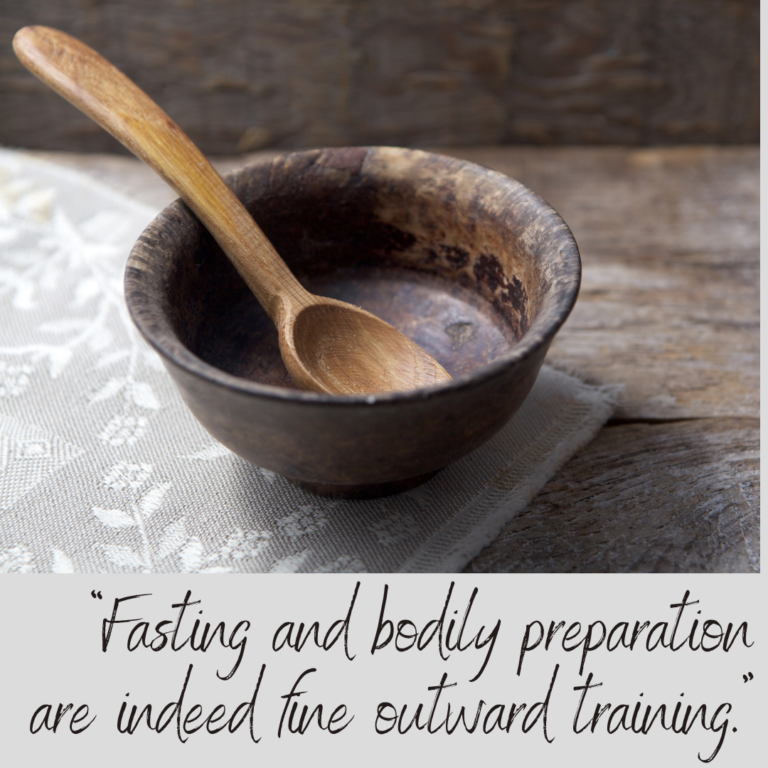March 3rd
For the Christian, Lent is ultimately about fasting from sin. It is an avoidance of anything that could interfere with, distract from, or disturb the preparation for the new Christian life with the risen Christ. The temporary interruption of some selfish habit for a limited period of time, with the intention of resuming the old habit after Easter, does not accomplish the Christian’s goal. Lenten observances should aim at permanent improvement of the Christian life.
While not necessary for forgiveness of sins, fasting can do good things for you. In the Small Catechism, Luther says, “Fasting and bodily preparation are indeed fine outward training.” Fasting can remind us of our dependence on God rather than on the resources of this world. Fasting can be a means of saving resources so they can be given to the poor. Fasting is a means of self-discipline in a world where self-denial is almost seen as a crime against humanity.
Fasting or some other Lenten observance is up to you. Those observances do not forgive our sins, but they may help us center our thoughts on the life, death, and resurrection of Jesus, which does forgive our sins.

March 10
10 Different Types of Fasts in the Bible
- The Disciples’ Fast (Matthew 17:21) – For deliverance from sin, addiction, bondage. If we fast, we can break the power of sins and addictions that limit our freedom in Christ.
- The Ezra Fast (Ezra 8:21-23) – For God’s help in solving problems and for protection from Satan. Ezra said that they prayed and fasted and God answered their request.
- The Samuel Fast (1 Samuel 7:6) – For revival. The people were bound by idol worship and needed deliverance. Samuel called them to seek God and to bring the Ark back to Jerusalem. If we fast and pray for revival, God will pour Himself out on His people.
- The Elijah Fast (1 Kings 19:4-8) – Mental freedom from emotional problems or habits. Through fasting, God will show us how to overcome emotional problems and destructive habits.
- The Widow’s Fast (1 Kings 17:9-16) – Fasting to provide for the needy. The widow went without food to meet the physical needs of someone else. Because she sacrificed her food, God made sure that she had more than enough food.
- Paul Fast (Acts 9:9) – For physical healing and to get direction from God. If we fast and submit our will to God, He will reveal His will to us.
- The John the Baptist Fast (Luke 1:15) – To enhance our walk with God and witness. If we fast for the influence of our testimonies to reach others for Christ, God will use us.
- The Esther Fast (Esther 4:16, 5:2) – For protection from the evil one. If we fast for protection, God will deliver us from evil.
- The Jesus Fast (Matthew 4:1-2) – For spiritual power and victory over temptation, the flesh and the devil.
- The Daniel Fast (Daniel 1: 5-21; 10:3) – Fasting for health and to seek God’s favor, purpose and vision for life.
March 17
Improve your spiritual life this Lent is by adding something!
- Keep a spiritual diary
- Attend worship during the week
- Read a spiritual book
- Listen to Christian music
- Read the Bible every day
- Write a letter every day in Lent and send it to a friend or family member
- Memorize a new prayer every week
- Intentionally pray for a different person every day
- Read a book as a family—special bonus if you can find a spiritual book everyone enjoys!
- Wake up thirty minutes earlier every morning and use the extra time for prayer
- Pray for your pastors and church workers
- Volunteer at a soup kitchen during the week
- Spend the first minute you wake up praying for the upcoming day
- Add a daily silent hour during which everyone in the family can pray, read, or reflect in silence
- Memorize a Scripture verse everyday
- Volunteer at a food pantry
- Eat one meal as a family every day
- Listen to a Biblical podcast
- Say you are thankful for something every day
- Perform an intentional act of kindness every day
- Say “thank you” a certain number of times every day…and mean it!
- Volunteer to make a meal for someone in need.
March 24 In preparation for Holy Week check out this article from the Lutheran Witness:
Devotional Tools for Holy Week